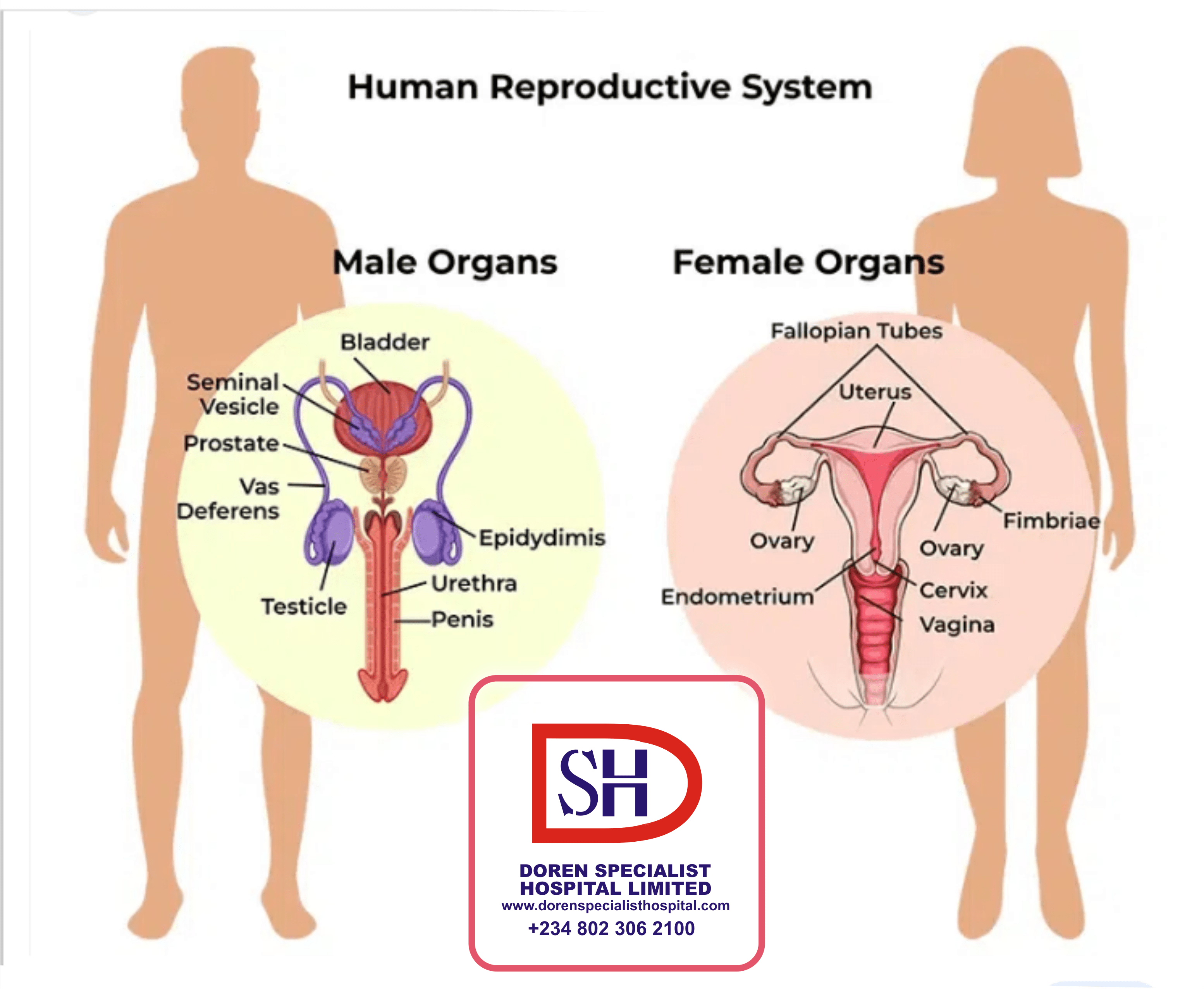The reproductive system, composed of:
- The male sex organ
- The female sex organs, which enables reproduction and thereby ensures the continuation of the species.
Human reproductive system is the organ system by which humans reproduce and bear live offspring. Provided all organs are present, normally constructed, and functioning properly, the essential features of human reproduction are:
(1) Liberation of an ovum, or egg, at a specific time in the reproductive cycle,
(2) Internal fertilization of the ovum by spermatozoa, or sperm cells,
(3) Transport of the fertilized ovum to the uterus, or womb,
(4) Implantation of the blastocyst, the early embryo developed from the fertilized ovum, in the wall of the uterus,
(5) Formation of a placenta and maintenance of the unborn child during the entire period of gestation,
(6) Birth of the child and expulsion of the placenta, and
(7) Suckling and care of the child, with an eventual return of the maternal organs to virtually their original state.
For this biological process to be carried out, certain organs and structures are required in both the male and the female. The source of the ova (the female germ cells) is the female ovary; that of spermatozoa (the male germ cells) is the testis. In females, the two ovaries are situated in the pelvic cavity; in males, the two testes are enveloped in a sac of skin, the scrotum, lying below and outside the abdomen.
Besides producing the germ cells, or gametes, the ovaries and testes are the source of hormones that cause full development of secondary sexual characteristics and also the proper functioning of the reproductive tracts. These tracts comprise the fallopian tubes, the uterus, the vagina, and associated structures in females and the penis, the sperm channels (epididymis, ductus deferens, and ejaculatory ducts), and other related structures and glands in males.
Don’t miss this topic after reading it. Share this on your page to help you keep a record of this topic year in year out. And this week, do not forget to mention us @Doren Specialist Hospital in any of your post.

